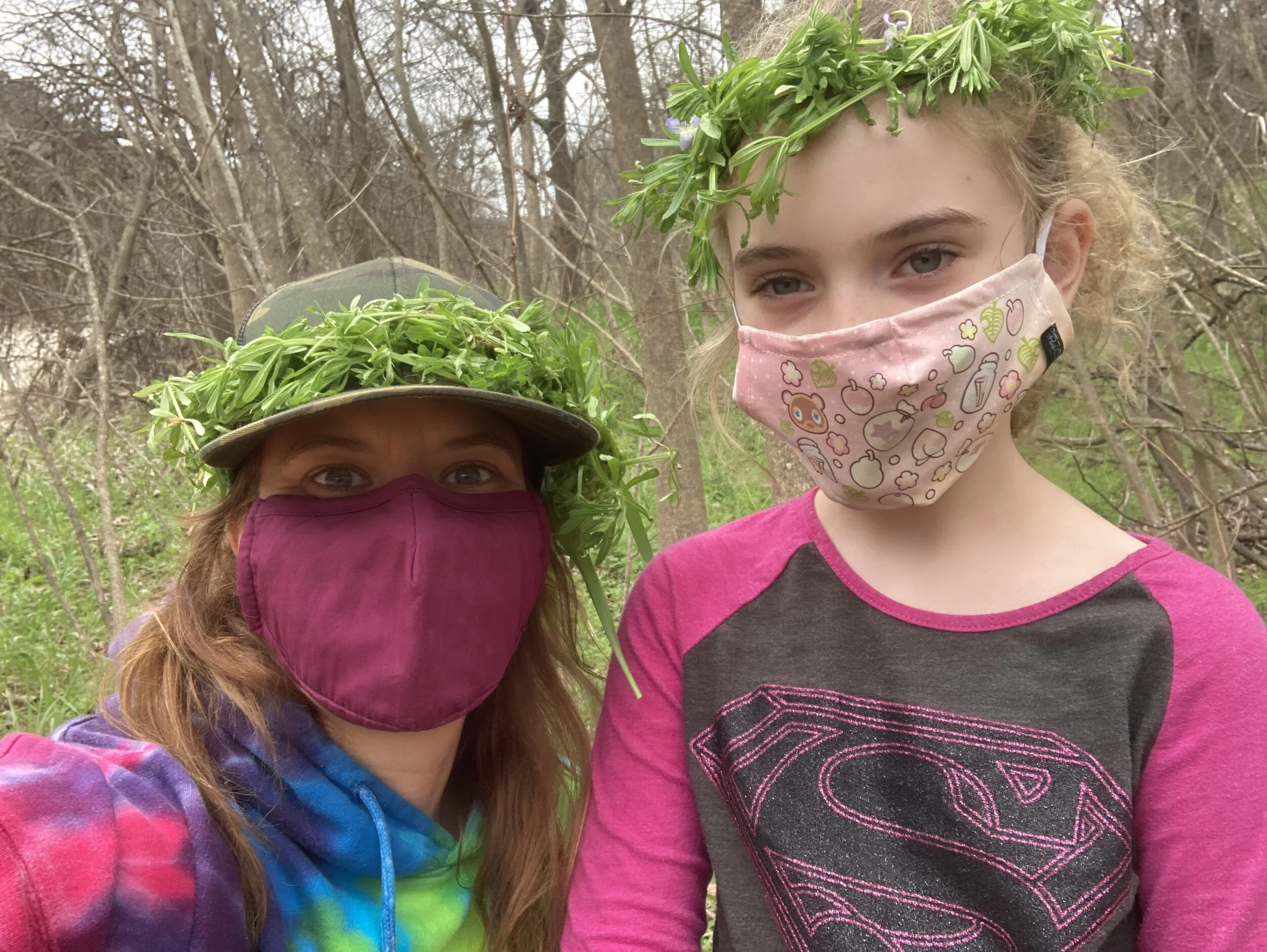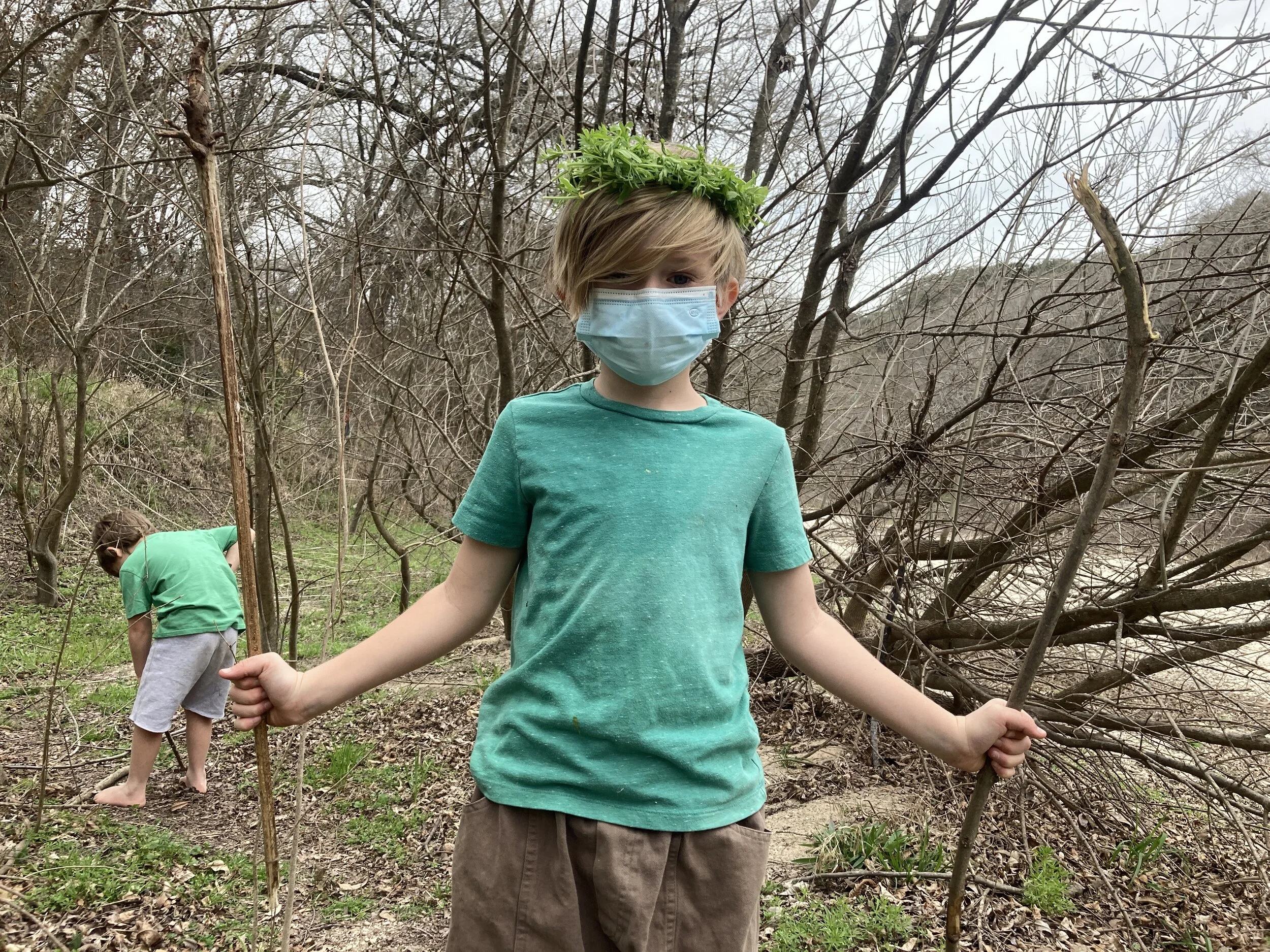At 9:30 a.m. the three Facilitators got on a call with each other to talk about the week ahead. Facilitator Lauren had been concerned by all the ticks she has seen at the spot that her cell is in, so she shared some information with us about how to protect Learners from ticks. Facilitator Ariel then offered to share that information on our Linktree, an Instagram post, an Instagram story, and to share it in on our internal facebook group.
I also shared an Instagram post to let our newer followers know that the Abrome community prioritized community care, safety, and being together since the earliest days of the pandemic, and that I have been posting about every day of this pandacademic year (although often a couple days behind, like today).
Also, since the new year I have been doing a lot of reading. Currently I am most interested in reading books about supporting young people and everything education (with or without schooling), abolition, Black liberation, the criminal injustice system, business and entrepreneurship, and I am trying to pepper in a lot more fiction, as well.
Over the weekend I finished my 24th book of 2021, A Good Neighborhood by Therese Anne Fowler. The key word is finished, because in addition to reading entire books I am also finishing off books that I had partly read and put down for weeks, months, and even years. The reason I bring this up is because I found A Good Neighborhood to be such a fabulous read that it gave me an idea for the morning prompts on Monday.
I started with, “what does it mean to be a good neighbor?” I don’t want to spoil anything so I’ll just say that in the novel being a good neighbor could mean not going into a new neighborhood and destroying what was already there, welcoming others in, allowing people to get away with harm to reduce conflict, or simply not going out of one’s way to destroy someone else’s life. For the Learners at Abrome they believed that being a good neighbor meant doing nothing that would interfere with others enjoying life, being there for them, respecting their personal space and property, sharing, being mindful of noise levels, be friendly, and loaning them something when they need it.
I then followed up with, “what makes a good neighborhood?” The novel touched on factors such as connection, community, gentrification, and race. The Learners said that a good neighborhood is where people check in on each other, where people meet each others’ needs without expecting something in return, where neighbors are friends, were everyone shares and is nice, where nobody is a jerk and everyone is nice, low crime, and where everyone shares. We briefly discussed what “low crime” means and given that the Learner who brought it up has committed to reading Usual Cruelty with us (more on that tomorrow) I think that we will get to dive deeper into that notion more in the near future.
After the morning meeting I asked if any of the Learners wanted to join me for the daily hike up the hill. They all said no, with some offering up excuses for not coming. Facilitator Ariel said he would like to go, and we asked only that all the Learners stay together until we got back. They agreed, and Facilitator Ariel and I climbed up the hill and then settled in for the morning meeting with the two Learners who showed up. Those two happened to be the two who said they were going to write a letter to Texas Governor Greg Abbott to let him know that they disagreed with his decision to prematurely end the mask mandate and end capacity constraints on businesses. One of the Learners had already sent in his letter via email, and the other Learner told me that she had written it out and was ready to mail it. I was later sent a picture of the letter by her mom and I’ll just say that it was a far more generous letter than I could have written, and as her mom said, it is better than he deserves.
At the other cell ten miles away the cloud cover seemed to calm the Learners down from their higher energy first week of the cell. Facilitator Lauren spoke with the Learners about the Flying Squad specialty cell that was scheduled for the coming cycle, although the Learner most likely to want to participate in it was too busy engaging with all the nature around him that he seemed to have missed much of the conversation.
Recognizing that the conversation was not helping the Learners they decided to explore. They went to a new place where they got to see a skink and a squirrel, and attempted to move in on each one of them. Both easily evaded the humans.
Facilitator Lauren helped identify a bunch of edible plants that were safe to eat in the area, and everyone gave the plants a try. While the Learners didn’t take to the plants like they take to hot chocolate and marshmallows they gave it a thumbs up. Or at least a thumbs sideways.
They also made the most of sticky weed as an accessory. In addition to making crows with the sticky weeds they also used it to provide camouflage, and even tried to cover Facilitator Lauren completely in it.
The pictures and videos that Facilitator Lauren took were great. One thing we really focused on this year was making sure that we captured great images of what was happening at Abrome, with the Learners’ consent, of course. At one point I did have to step in and kindly asked them to avoid vertical video syndrome, which I learned about in my copwatching days. Vertical videos can make an amazing video just ok, and a good video junk. I bring this up because Facilitator Ariel told me that he was making a vertical video, realized it and stopped, flipped the phone, and took a horizontal video! I love moments like that.
Back at the cell that Facilitator Ariel and I were in, the Learners took an empty plastic bottle that someone had left on the dock and filled it with pecan shells. Then they turned it into a game. The game was not complicated, it was just a form of playing catch on the dock on the lake. But there were some twists. If the bottle were to fall in the water because you dropped it you had to get the bottle out of the water. The exception to this was that if the person who threw it was careless in the throw then they had to get the bottle out of the water. If the bottle was near enough to the dock it would be easy enough to fish it out with a light saber (inactive). However, if the current pulled it away or the throw was bad, then it would require a Learner to jump in. And the water was cold. Lucky for all involved no one had to jump in.
While they were playing I reviewed an Edutopia video on 7 Tips for Moving Learning Outside for schools. What a disappointment. This pandemic has really highlighted the lack of creativity and innovation from conventional schools, and exposed their absolute inability to reform themselves in a way that would best serve their students and the general public. Thank goodness Self-Directed Education is an option for most young people.
And Facilitator Ariel and I had a planned discussion on Self-Directed Education and Flying Squads planned that afternoon, and we had invited the Learners to participate in it with us. We asked the Learners if they were ready for the planned 2:00 p.m. discussion, but they were in the process of transitioning from the game they were playing with the pecan filled bottle on the dock to a game of monkey in the middle with the same pecan filled bottle in the middle of the large field adjacent to the lake. They said they wanted to do both but really wanted to play monkey in the middle, and they wanted us to play, as well. I offered that we could play with them for a half hour and then they could join us in the conversation, to which one Learner said that he was not interested in the conversation, but the others all said yes.
We then played some pretty intense rounds of monkey in the middle. There was a lot of diving on the ground, some wrestling, and some sore hands as one of the Learners though the best strategy was to rifle the bottle to the other people in the circle. One of the Learners even managed to end up with a garbage can on his back after he dove into it going after the bottle. Fortunately no one was injured, and doubly fortunately I think we got some really great GoPro footage of it. Although such footage is not available quite yet and could not make it into this blog post.
Self-Directed Education and Flying Squad conversation
After the game the Learners all moved back to the dock for the meeting, and the Learner who said he was uninterested in joining in on the meeting joined nonetheless because that was what all of the other Learners chose to do.
The conversation was really great, as we had some Learners who had been with us before the pandemic hit, some who joined at the beginning of the pandacademic year, and Facilitator Ariel and a Learner who joined midyear. We talked about why Self-Directed Education was meaningful for each of them, what they were getting out of Abrome, what surprised them, and the shortcomings of SDE. Then we discussed Flying Squads in particular because of the Flying Squad day that was scheduled for Wednesday.
At 3:00 p.m. I hosted the afternoon roundup for the remote Learners, during which we discussed what job we would want to have if we were forced to take a job. I said that I would be doing exactly this, and fortunate me, this is what I am doing. I then joined the in-person cell again and we held our 3:30 p.m. afternoon roundup. One of the Learner’s asked us to jump in for game shifting and then Facilitator Ariel asked three prompts, of which I found the follow up to the morning prompts of “why is it important to be a good neighbor?” to be the most interesting. The Learners replied, when you need something from them they’ll be there to help you, it feels good when I’m nice to others, we are all better off when we support each other, it makes others and ourselves feel happy and to not be known as a douchebag, it’s nice to have friends and makes you feel better and live longer, and we need to take care of the people around us because the government sucks. Then we walked back to the pick-up spot to call it a day. We stopped briefly to appreciate the carpenter ants back at work.





